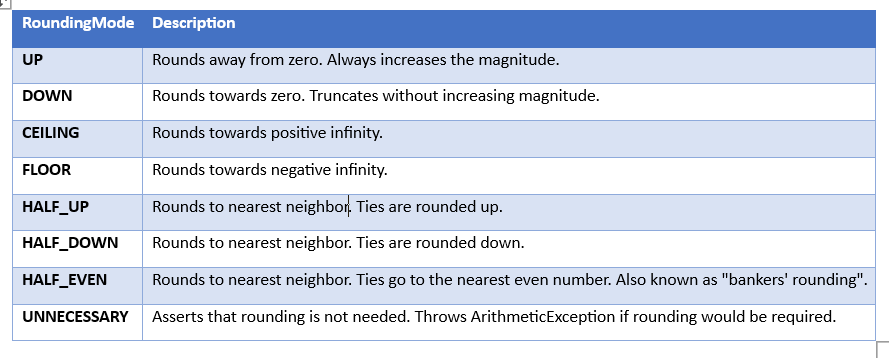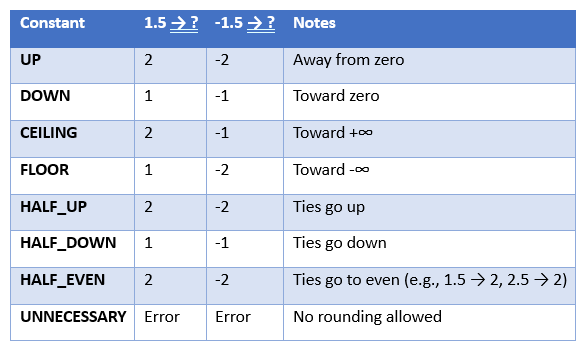The RoundingMode enum (defined in java.math.RoundingMode) specifies how to round a BigDecimal when its exact value cannot be represented with the required precision. It is used extensively with classes like BigDecimal and MathContext to control how rounding decisions are made — especially for decimal places or significant digits.
Need for RoundingMode
When performing arithmetic operations such as division or setting a specific precision using MathContext, the result may not be exactly representable. In such cases, Java uses a rounding strategy to determine how the final value should be adjusted.
RoundingMode Enum Constants

For Example

Program
import java.math.BigDecimal;
import java.math.RoundingMode;
public class RoundingModeExample {
public static void main(String[] args) {
BigDecimal value = new BigDecimal("2.555");
System.out.println("Original Value: " + value);
for (RoundingMode mode : RoundingMode.values()) {
try {
BigDecimal rounded = value.setScale(2, mode);
System.out.println(mode + ": " + rounded);
} catch (ArithmeticException e) {
System.out.println(mode + ": Rounding not possible (Exception)");
}
}
}
}
Use Cases
HALF_UP: Common for general rounding (e.g., money).HALF_EVEN: Used in banking to reduce cumulative bias.UNNECESSARY: For validation or when rounding must not happen.UP,DOWN,FLOOR,CEILING: Useful in tax computations, scientific formatting, or domain-specific rounding.
The RoundingMode enum gives developers fine-grained control over how values are rounded in arithmetic operations. It ensures both predictability and flexibility, especially in applications where precision and correctness matter. By combining it with BigDecimal and MathContext, developers can build robust and accurate numerical systems tailored to specific business or scientific rules.
